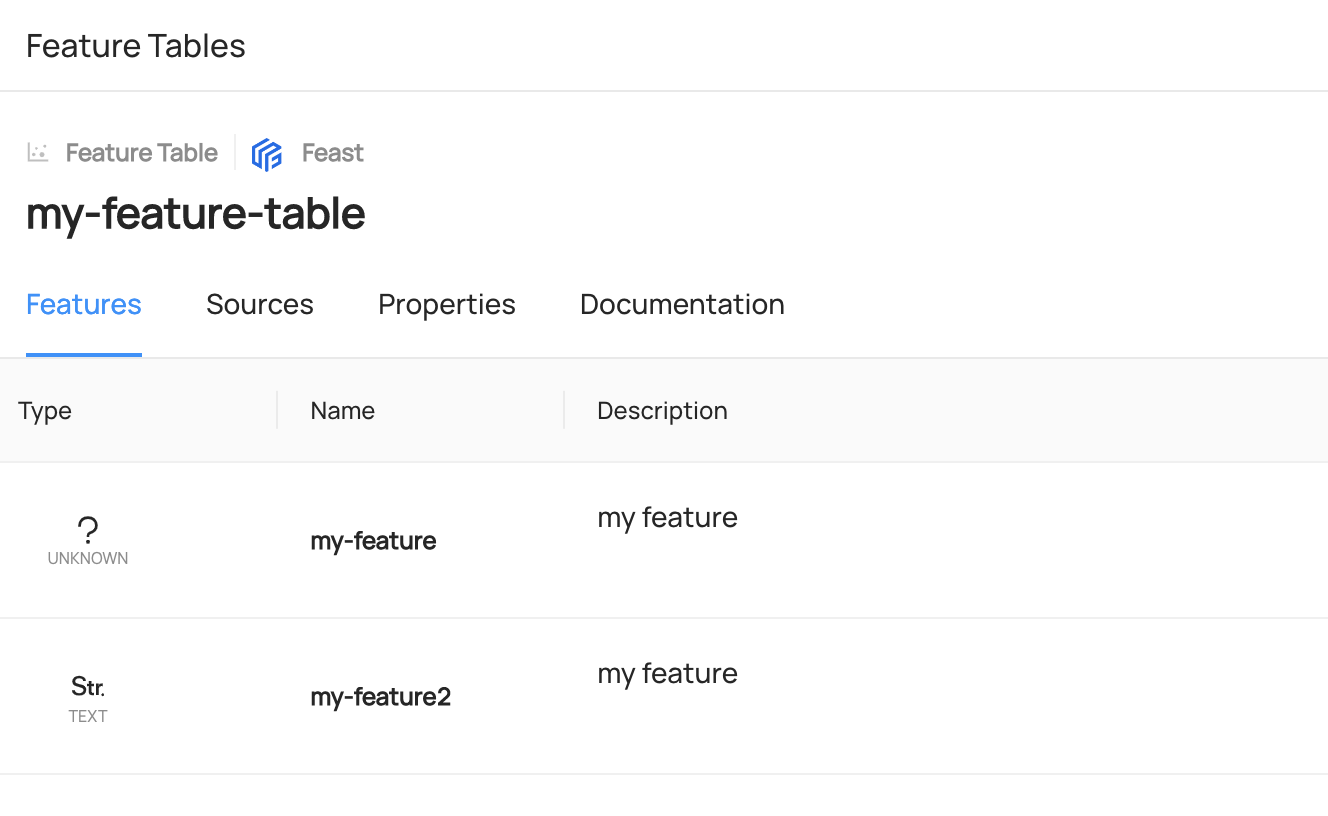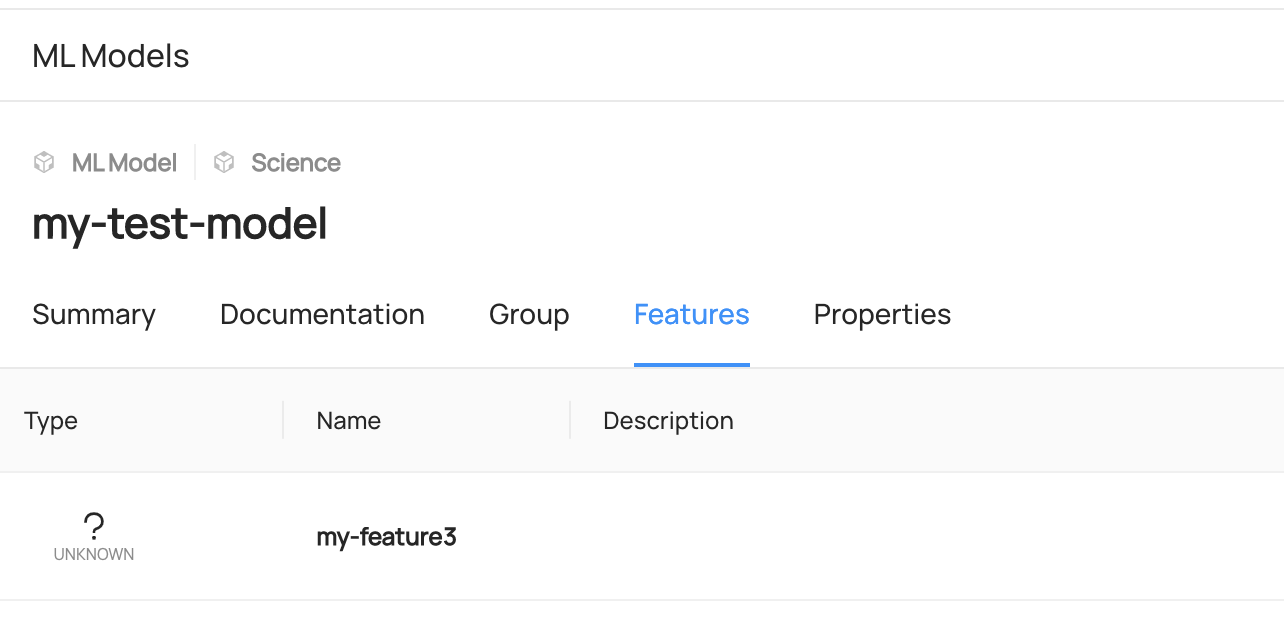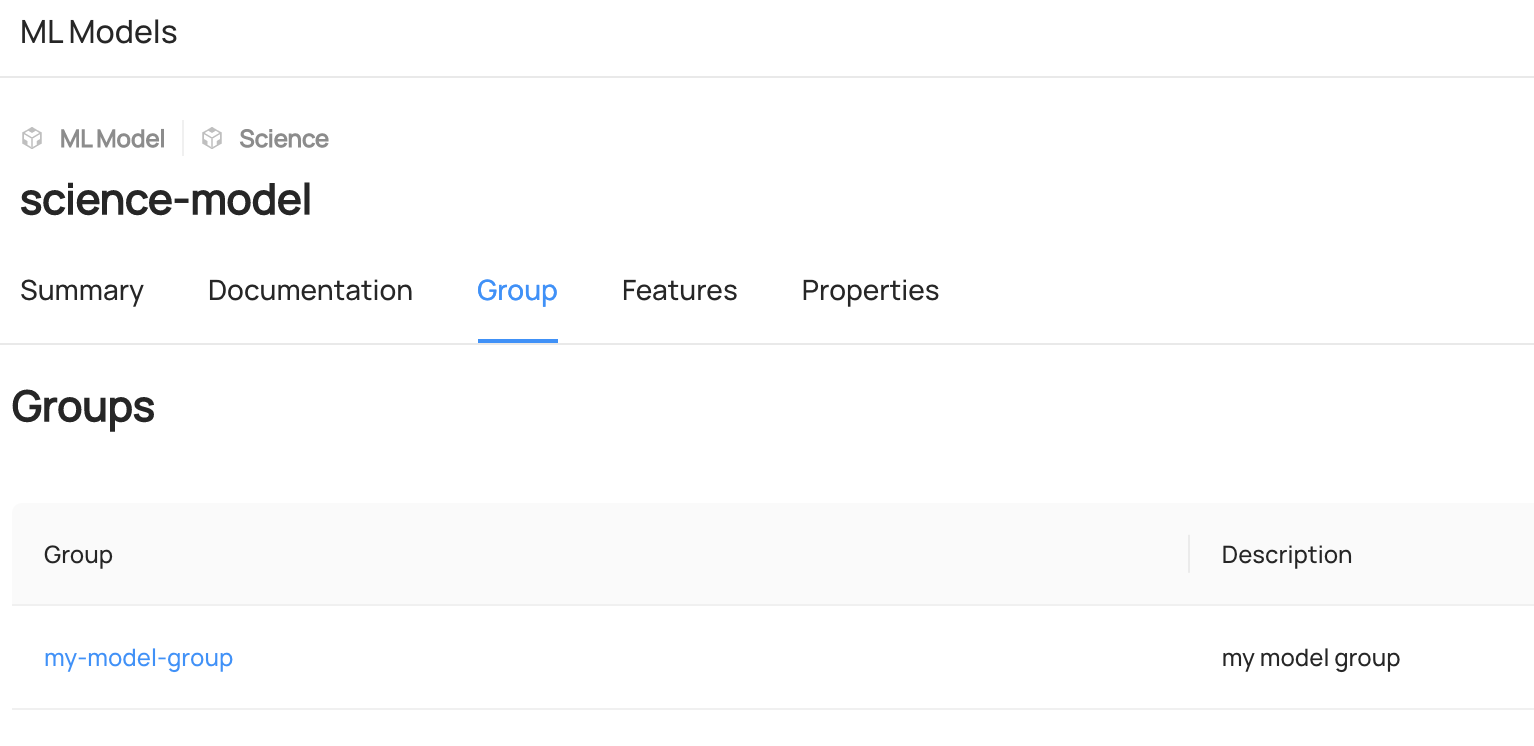import Tabs from '@theme/Tabs';
import TabItem from '@theme/TabItem';
# Feature Store Integration With DataHub
## Why Would You Integrate Feature Store with DataHub?
Feature Store is a data management layer that stores, organizes, and manages features for machine learning models. It is a centralized repository for features that can be used across different AI/ML models.
By integrating Feature Store with DataHub, you can track the lineage of features used in AI/ML models, understand how features are generated, and how they are used to train models.
For technical details on feature store entities, please refer to the following docs:
- [MlFeature](/docs/generated/metamodel/entities/mlFeature.md)
- [MlPrimaryKey](/docs/generated/metamodel/entities/mlPrimaryKey.md)
- [MlFeatureTable](/docs/generated/metamodel/entities/mlFeatureTable.md)
### Goal Of This Guide
This guide will show you how to
- Create feature store entities: MlFeature, MlFeatureTable, MlPrimaryKey
- Read feature store entities: MlFeature, MlFeatureTable, MlPrimaryKey
- Attach MlModel to MlFeature
- Attach MlFeatures to MlFeatureTable
- Attached MlFeatures to upstream Datasets that power them
## Prerequisites
For this tutorial, you need to deploy DataHub Quickstart and ingest sample data.
For detailed steps, please refer to [Datahub Quickstart Guide](/docs/quickstart.md).
## Create ML Entities
:::note
For creating MLModels and MLGroups, please refer to [AI/ML Integration Guide](/docs/api/tutorials/ml.md).
:::
### Create MlFeature
An ML Feature represents an instance of a feature that can be used across different machine learning models. Features are organized into Feature Tables to be consumed by machine learning models. For example, if we were modeling features for a Users Feature Table, the Features would be `age`, `sign_up_date`, `active_in_past_30_days` and so forth.Using Features in DataHub allows users to see the sources a feature was generated from and how a feature is used to train models.
```python
{{ inline /metadata-ingestion/examples/library/create_mlfeature.py show_path_as_comment }}
```
Note that when creating a feature, you create upstream lineage to the data warehouse using `sources`.
### Create MlPrimaryKey
An ML Primary Key represents a specific element of a Feature Table that indicates what group the other features belong to. For example, if a Feature Table contained features for Users, the ML Primary Key would likely be `user_id` or some similar unique identifier for a user. Using ML Primary Keys in DataHub allow users to indicate how ML Feature Tables are structured.
```python
{{ inline /metadata-ingestion/examples/library/create_mlprimarykey.py show_path_as_comment }}
```
Note that when creating a primary key, you create upstream lineage to the data warehouse using `sources`.
### Create MlFeatureTable
A feature table represents a group of similar Features that can all be used together to train a model. For example, if there was a Users Feature Table, it would contain documentation around how to use the Users collection of Features and references to each Feature and ML Primary Key contained within it.
```python
{{ inline /metadata-ingestion/examples/library/create_mlfeature_table.py show_path_as_comment }}
```
Note that when creating a feature table, you connect the table to its features and primary key using `mlFeatures` and `mlPrimaryKeys`.
### Expected Outcome of creating entities
You can search the entities in DataHub UI.

## Read ML Entities
### Read MLFeature
```json
query {
mlFeature(urn: "urn:li:mlFeature:(test_feature_table_all_feature_dtypes,test_BOOL_LIST_feature)"){
name
featureNamespace
description
properties {
description
dataType
version {
versionTag
}
}
}
}
```
Expected response:
```json
{
"data": {
"mlFeature": {
"name": "test_BOOL_LIST_feature",
"featureNamespace": "test_feature_table_all_feature_dtypes",
"description": null,
"properties": {
"description": null,
"dataType": "SEQUENCE",
"version": null
}
}
},
"extensions": {}
}
```
```json
curl --location --request POST 'http://localhost:8080/api/graphql' \
--header 'Authorization: Bearer ' \
--header 'Content-Type: application/json' \
--data-raw '{
"query": "{ mlFeature(urn: \"urn:li:mlFeature:(test_feature_table_all_feature_dtypes,test_BOOL_LIST_feature)\") { name featureNamespace description properties { description dataType version { versionTag } } } }"
}'
```
Expected response:
```json
{
"data": {
"mlFeature": {
"name": "test_BOOL_LIST_feature",
"featureNamespace": "test_feature_table_all_feature_dtypes",
"description": null,
"properties": {
"description": null,
"dataType": "SEQUENCE",
"version": null
}
}
},
"extensions": {}
}
```
```python
{{ inline /metadata-ingestion/examples/library/read_mlfeature.py show_path_as_comment }}
```
### Read MlPrimaryKey
```json
query {
mlPrimaryKey(urn: "urn:li:mlPrimaryKey:(user_features,user_id)"){
name
featureNamespace
description
dataType
properties {
description
dataType
version {
versionTag
}
}
}
}
```
Expected response:
```json
{
"data": {
"mlPrimaryKey": {
"name": "user_id",
"featureNamespace": "user_features",
"description": "User's internal ID",
"dataType": "ORDINAL",
"properties": {
"description": "User's internal ID",
"dataType": "ORDINAL",
"version": null
}
}
},
"extensions": {}
}
```
```json
curl --location --request POST 'http://localhost:8080/api/graphql' \
--header 'Authorization: Bearer ' \
--header 'Content-Type: application/json' \
--data-raw '{
"query": "query { mlPrimaryKey(urn: \"urn:li:mlPrimaryKey:(user_features,user_id)\"){ name featureNamespace description dataType properties { description dataType version { versionTag } } }}"
}'
```
Expected response:
```json
{
"data": {
"mlPrimaryKey": {
"name": "user_id",
"featureNamespace": "user_features",
"description": "User's internal ID",
"dataType": "ORDINAL",
"properties": {
"description": "User's internal ID",
"dataType": "ORDINAL",
"version": null
}
}
},
"extensions": {}
}
```
```python
{{ inline /metadata-ingestion/examples/library/read_mlprimarykey.py show_path_as_comment }}
```
### Read MLFeatureTable
```json
query {
mlFeatureTable(urn: "urn:li:mlFeatureTable:(urn:li:dataPlatform:feast,test_feature_table_all_feature_dtypes)"){
name
description
platform {
name
}
properties {
description
mlFeatures {
name
}
}
}
}
```
Expected Response:
```json
{
"data": {
"mlFeatureTable": {
"name": "test_feature_table_all_feature_dtypes",
"description": null,
"platform": {
"name": "feast"
},
"properties": {
"description": null,
"mlFeatures": [
{
"name": "test_BOOL_LIST_feature"
},
...{
"name": "test_STRING_feature"
}
]
}
}
},
"extensions": {}
}
```
```json
curl --location --request POST 'http://localhost:8080/api/graphql' \
--header 'Authorization: Bearer ' \
--header 'Content-Type: application/json' \
--data-raw '{
"query": "{ mlFeatureTable(urn: \"urn:li:mlFeatureTable:(urn:li:dataPlatform:feast,test_feature_table_all_feature_dtypes)\") { name description platform { name } properties { description mlFeatures { name } } } }"
}'
```
Expected Response:
```json
{
"data": {
"mlFeatureTable": {
"name": "test_feature_table_all_feature_dtypes",
"description": null,
"platform": {
"name": "feast"
},
"properties": {
"description": null,
"mlFeatures": [
{
"name": "test_BOOL_LIST_feature"
},
...{
"name": "test_STRING_feature"
}
]
}
}
},
"extensions": {}
}
```
```python
{{ inline /metadata-ingestion/examples/library/read_mlfeature_table.py show_path_as_comment }}
```
### Read MLModel
```json
query {
mlModel(urn: "urn:li:mlModel:(urn:li:dataPlatform:science,scienceModel,PROD)"){
name
description
properties {
description
version
type
mlFeatures
groups {
urn
name
}
}
}
}
```
Expected Response:
```json
{
"data": {
"mlModel": {
"name": "scienceModel",
"description": "A sample model for predicting some outcome.",
"properties": {
"description": "A sample model for predicting some outcome.",
"version": null,
"type": "Naive Bayes classifier",
"mlFeatures": null,
"groups": []
}
}
},
"extensions": {}
}
```
```json
curl --location --request POST 'http://localhost:8080/api/graphql' \
--header 'Authorization: Bearer ' \
--header 'Content-Type: application/json' \
--data-raw '{
"query": "{ mlModel(urn: \"urn:li:mlModel:(urn:li:dataPlatform:science,scienceModel,PROD)\") { name description properties { description version type mlFeatures groups { urn name } } } }"
}'
```
Expected Response:
```json
{
"data": {
"mlModel": {
"name": "scienceModel",
"description": "A sample model for predicting some outcome.",
"properties": {
"description": "A sample model for predicting some outcome.",
"version": null,
"type": "Naive Bayes classifier",
"mlFeatures": null,
"groups": []
}
}
},
"extensions": {}
}
```
```python
{{ inline /metadata-ingestion/examples/library/read_mlmodel.py show_path_as_comment }}
```
## Add ML Entities
### Add MlFeature to MlFeatureTable
```python
{{ inline /metadata-ingestion/examples/library/add_mlfeature_to_mlfeature_table.py show_path_as_comment }}
```
### Add MlFeature to MLModel
```python
{{ inline /metadata-ingestion/examples/library/add_mlfeature_to_mlmodel.py show_path_as_comment }}
```
### Add MLGroup To MLModel
```python
{{ inline /metadata-ingestion/examples/library/add_mlgroup_to_mlmodel.py show_path_as_comment }}
```
### Expected Outcome of Adding ML Entities
You can access to `Features` or `Group` Tab of each entity to view the added entities.





